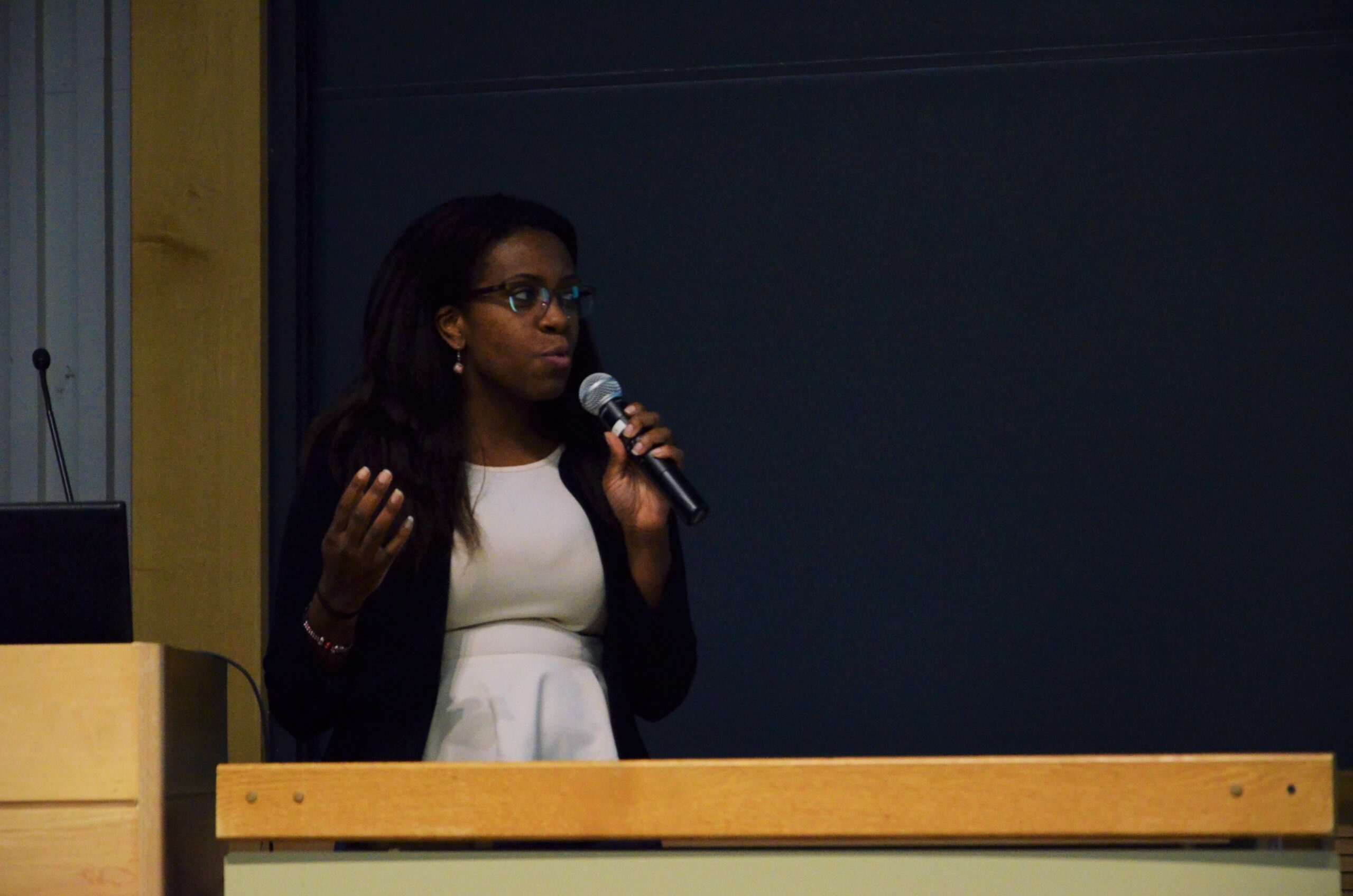The Feminist Association of Wheaton hosted a talk on Nov. 3 concerning sexual assault on college campuses. The speaker was Wagatwe Wanjuki, who shared her story as both a survivor and a renowned activist against sexual assault. The presentation was focused on how activists and survivors can use new media and Internet tools to give themselves a voice and influence change.
Wanjuki’s story is one that highlights some of the problems in society concerning rape culture on campus.
While attending Tufts University for two years, Wanjuki was in an abusive relationship with several instances of sexual assault. After filing a report with the college, her expectations were that the school would take serious action, yet they did not.
“It was really disappointing,” Wanjuki said, “the school pretended they were going to defend and protect me, and they didn’t. That’s why I was so devastated.”
Her response to this wrongdoing was to do what she had done her whole life: use the Internet. The effects of Wanjuki’s involvement with the Internet as a positive resource have been profound. As she said, “I’ve done so much on the Internet, that it’s really given me my voice.”
By creating an anonymous blog detailing her experiences at Tufts, she put serious pressure on the school and eventually forced them to create stronger policies by starting an online movement at the campus. Despite all of this, the university was bitter about the negative attention and invented a reason to expel Wanjuki, claiming she had a particularly low GPA.
Since then though, Wanjuki has been a serious advocate for using the Internet as a tool to help affect change in policies and start movements. She pointed out that the Internet gives anyone with a computer an equal opportunity to have a voice and present opinions without media bias.
“Having [the internet as] this level playing field is really integral to organizing movements or causes,” Wanjuki said. “On the Internet you can have autonomy, you can put [your opinion] the way you’d like it…there is no dependency on mainstream media and the way that they can sometimes spin things.”
Wanjuki has reached the national level with her online advocacy. Kate Gannon ’16, co-president of the Feminist Association of Wheaton, had this to say of Wanjuki’s accomplishments: “she is a survivor who created a movement, joined with other student survivors, made lasting changes at Tufts, pushed for federal legislation addressing sexual assault on college campus, created entire social media campaigns, and writes for leading feminist publications. She has done so much in a very short amount of time.”
Wanjuki is also the creator of #survivorprivilege, which trended nationally in response to a misguided story written by columnist George Smith.
Her online efforts have also led to offline activism, as she has also appeared on national shows such as The Daily Show and participated heavily in a major rally outside the White House as a member of the “Know Your IX” activist group.
Wanjuki knows that online campaigns can work, and does not chastise those who can’t put their full time into a cause. “I respect all forms of activism, if all you can do is click ‘like’ on Facebook, I’m fine with that,” Wanjuki said.
For those that want to be serious activists online, she suggests being a good storyteller and having a serious theory of change. “It’s important to have online work and offline action though,” Wanjuki added, “you can’t do everything on the Internet.”
Overall the Feminist Association of Wheaton was extremely happy with the presentation.
“We began applying for funding [for the presentation] as soon as we got to campus this fall. It has been months of hard work, but it paid off. The turnout was great last night, and it was even better than we expected,” said Gannon. “I felt inspired, so I hope other people came away with some new ideas on how to use social media for their own movements.”
Wanjuki had this advice to anyone thinking about breaking the silence concerning a sexual assault encounter: “It’s a really big decision to make and we have to respect that the survivors know what’s best for them…For anyone thinking about coming out I would tell them to not feel pressured to come forward, and make sure to have a support system.”
While Wheaton hopes to continue to act as a strong support system for any survivors, the school is still looking for ways to improve, which is a good thing as Gannon pointed out, “we need to listen to the experiences of survivors who have gone through the process and identify the parts of our policy that need to be refined or rewritten. No policy is perfect.”

